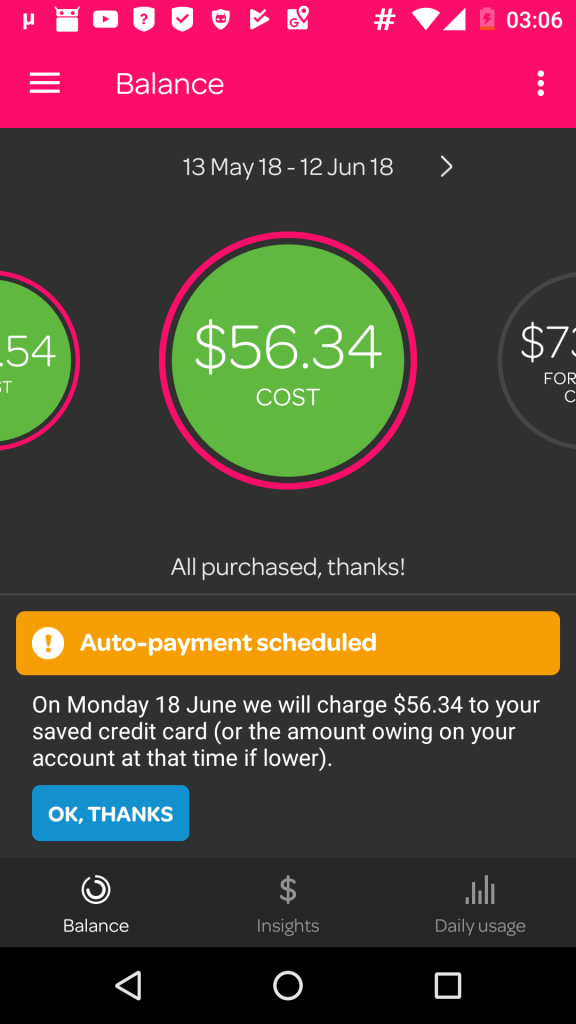Here's my electricity bill for the last month -winter, when electricity consumption is typically highest- in central Auckland, the largest city in New Zealand.
My electricity usage is never going to be greater but for the sake of argument let's assume this amount of utilisation in a winter month is actually an average for every month and extrapolate it out to a year:
$676.08= $56.34 x 12
But hang on: my local power utility is
Vector. The majority shareholder of Vector is
Entrust, a Trust established during the privatisation of New Zealand's energy market to represent consumers.
I qualify as a beneficiary of Entrust merely by being a consumer of electricity. Because I am a beneficiary, the Trust pays me out every year from the profits the Trust receives from Vector, my electricity utility. Every year, my payment amounts to about $350.
So taking that yearly figure of $676.06 above and subtracting my rebate from Entrust, my annual electricity costs are:
$326.08 = 676.08 - 350.
Yep, you read that right: I live in the very centre of the world's most liveable city and my energy costs are:
$NZ27.13 per month, a paltry
$NZ5.80 per week.
Less than a dollar a day.
In a world where energy and climate are such internationally significant issues, why are my costs inordinately low? There are two primary reasons:
-New Zealand possesses an abundance of energy from renewable resources. Hydro-generation and geothermal-generation have been the backbone of the power grid for a long time, increasingly supplemented by wind-generation and solar-generation.
-A controlling interest in the electricity utility is, the capitalist in me struggles to admit, community owned.
